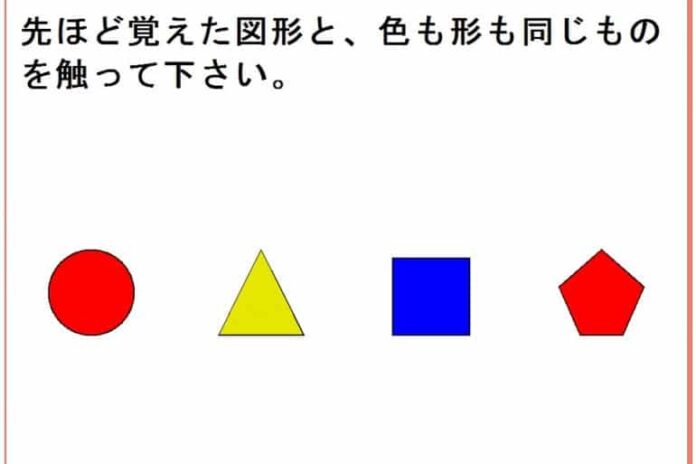[ad_1]
Summary: A new computerized assessment appears to be effective in screening for mild cognitive impairment and dementia within five minutes.
Source: Kanazawa University
As the global population ages, the rate of dementia is increasing worldwide. Given that early detection is critical for treatment, effective ways to screen for dementia are a high research priority. Now, researchers from Japan have developed a new screening tool that can be administered in a matter of minutes.
In a study published in PLOS ONE, researchers from Kanazawa University have revealed a new computerized cognitive test, termed the computerized assessment battery for cognition (C-ABC), which they found to be effective in screening for both dementia and mild cognitive impairment (MCI) in just 5 minutes.
Computerized cognitive tests are frequently chosen over paper-and-pencil versions because they are more precise and do not require training to administer. However, computerized cognitive tests for dementia and MCI generally take 10-30 minutes to complete. Further, the wide range of existing tests can make it difficult for healthcare practitioners to choose one that is suitable for detecting dementia or MCI. The researchers at Kanazawa University aimed to address this by creating a test that could be used to accurately and efficiently screen for both conditions.
“Although patients with dementia usually have disorientation and severe memory disturbance, those with MCI and those with normal cognition rarely have both,” says co-lead author of the study Moeko Noguchi-Shinohara. “We wanted to develop a test that could distinguish these cognitive states in an efficient manner.”
To do this, the researchers collected C-ABC scores from participants in different age groups (50s, 60s, and those aged 70-85 years) with dementia, MCI, and normal cognition. They then conducted a range of statistical tests to determine whether the test could distinguish normal cognition, dementia, and MCI.
“The results were surprising,” explains Masahito Yamada, senior author. “We found that the C-ABC could distinguish individuals with MCI from those with normal cognition using scores from items that only took 5 minutes to complete.”

In fact, in the 75-80 age group, answers from just two questions could distinguish participants with MCI from those with normal cognition, and these two items took just 2 minutes to complete.
“When we compared our C-ABS scores with those from the frequently used Mini-Mental State Examination (MMSE), we found a high correlation. However, the C-ABC is substantially faster to complete than the MMSE, and may be more sensitive to MCI or mild dementia,” says Yamada.
The data indicate that when used with a high cut-off score for sensitivity, the C-ABC is appropriate for initial screening for dementia and MCI. This new tool could make cognitive screening more accessible and efficient, thus enabling earlier detection of MCI or dementia. This, in turn, could improve the treatment options and overall outcome for individuals with MCI or dementia.
About this dementia research news
Source: Kanazawa University
Contact: Tomoya Sato – Kanazawa University
Image: The image is credited to Kanazawa University
Original Research: Open access
“A new computerized assessment battery for cognition (C-ABC) to detect mild cognitive impairment and dementia around 5 min” by Moeko Noguchi-Shinohara et al. PLOS ONE
Abstract
A new computerized assessment battery for cognition (C-ABC) to detect mild cognitive impairment and dementia around 5 min
This study aimed to develop a new computerized assessment battery for cognition (C-ABC) to detect mild cognitive impairment (MCI) and dementia. We performed C-ABC in subjects with dementia (n = 422), MCI (n = 145), and normal cognition (NC; n = 574), and analyzed by age stratum (50s, 60s, and 70–85 years).
To distinguish MCI from NC, the C-ABC total combined score, which were calculated by dividing the C-ABC total score by the C-ABC required time, revealed the best area under the curves (AUC) at 0.838 and 0.735 in the 50s and 60s age groups, respectively; notably, this entire procedure took approximately 5 min. To distinguish dementia from NC and MCI, the partial items of C-ABC (items 3 + 6 combined score) revealed the best AUCs at 0.910, 0.874, and 0.882 in the 50s, 60s, and 70–85 age groups, respectively. Furthermore, the items 3 + 6 combined score established the best AUC at 0.794 in the 70–85 age group to distinguish MCI from NC; this entire procedure took around 2 min.
Hence, this study suggests that C-ABC could be a useful tool for detecting dementia or MCI in a short time.
[ad_2]
Source link













